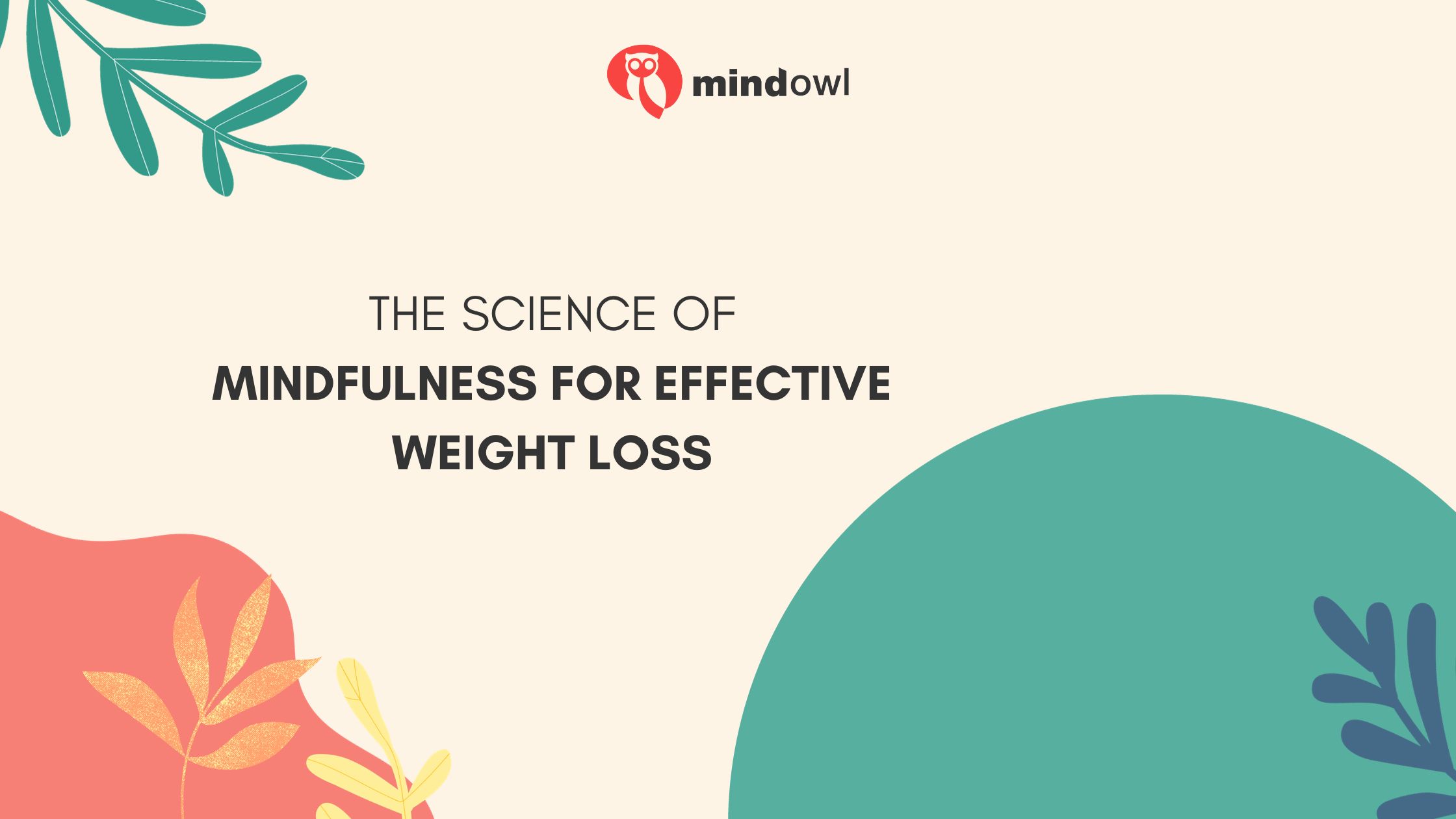Losing weight often feels like an endless cycle of extreme diets and deprivation. This leads to frustration and yo-yo dieting when the pounds inevitably return.
This article presents a different approach to weight loss by using mindfulness. Mindfulness means paying full attention to the present moment instead of acting on auto-pilot. Research shows mindfulness helps change overeating behaviors leading to long-term sustainable weight loss. You’ll learn mindful eating tips to tune into physical vs emotional hunger cues, be present during meals, reduce speed eating, and build a more compassionate relationship with food and your body. The focus is ending the diet mentality and reaching your healthy weight through self-awareness and balance.
The journey takes patience, but mindfulness provides the skills for lasting change. By tuning into your body’s wisdom, you gain control over your choices.
Key Takeaways
- Practising mindful eating means focusing on what and how you eat, which can help you enjoy your meals more and know when you’re full to avoid overeating.
- Mindfulness helps reduce binge eating by making you more aware of why you eat, so you can stop before eating too much.
- Studies have shown that combining mindfulness with a good diet leads to weight loss and keeps the weight off in the long run.
- Techniques for starting mindful eating include chewing slowly, turning off distractions during meals, and listening to your body’s hunger signals.
- Mindfulness meditation is also linked to weight loss because it reduces emotional eating by increasing self-awareness and acceptance.

Understanding Mindful Eating for Weight Loss
Mindful eating is a practice that involves paying full attention to the experience of eating and drinking, both inside and outside the body. It focuses on developing an awareness of one’s physical hunger and satiety cues to guide their food choices and eating behaviours.
What is mindful eating?
Mindful eating is about paying close attention to what you eat and how you eat. It means noticing the colours, smells, textures, and flavours of your food. When practising this way of eating, people take their time to chew slowly and savour each bite.
They listen to their body’s hunger signals and stop eating when they feel full.
By focusing on the moment-to-moment experience of eating, mindful eating helps control appetite. Slowing down while you eat can lead to less food intake and possibly aid in weight loss.
This approach includes being aware of both physical hunger cues from your body as well as emotional feelings that might make someone want to eat more than necessary. It’s an important part of managing your relationship with food and has been linked to health improvements for those struggling with overeating or unhealthy eating patterns.
Benefits of mindful eating
Mindful eating turns mealtime into a moment of self-care. It makes us more aware of our body’s needs and helps us enjoy our food.
- Enjoy your meals more: Eating slowly and paying attention to the tastes, smells, and textures can make meals more enjoyable.
- Know when you’re full: Being mindful helps you notice the signs of fullness, so you don’t eat too much.
- Less stress at meal times: Mindful eating can make meals feel less rushed and stressful.
- A better handle on cravings: You learn to spot the difference between real hunger and eating just because you feel like it.
- Helps with making healthy choices: You become more aware of your food choices, which can lead to healthier options.
- Support for weight loss: Studies show that mindful eating may help with losing weight because it teaches you to listen to your body.
Relation to weight loss
Paying close attention to the experience of eating can help people eat less because they are aware of each bite and may notice they are full sooner.
Taking time to chew food slowly allows the body’s natural signals for hunger and satisfaction to work properly. Studies show that this kind of awareness helps reduce overeating and even stops binge eating behaviours.
Mindfulness training along with a good diet often leads to weight loss for overweight individuals. Research also proves that mindfulness keeps weight off in the long run. By focusing on what you eat, when you’re truly hungry instead of just bored or sad, you can make better food choices.
Slowing down at mealtimes makes it easier not to overeat which is key for losing weight in a healthy way.
How Mindful Eating Can Help with Weight Loss
Mindful eating can aid in weight loss by reducing binge eating, improving unhealthy eating behaviours, and promoting self-awareness and self-acceptance. Through mindfulness, individuals can better understand their relationship with food and make healthier choices without feeling deprived or restricted.
Reducing binge eating
Overeating in a short time can be a big problem for losing weight. Mindful eating helps people notice when they are really hungry and when they want to eat for other reasons, like feeling sad or bored.
This way, they learn to stop before overeating starts.
Mindfulness practice teaches us to understand our body’s signs of hunger and fullness better. It helps stop binge eating by making us more aware of our food choices and the reasons we eat.
People with binge eating disorder find that mindfulness leads to less overeating and this can play a big part in managing weight effectively.
Additionally, incorporating products like PhenQ Complete Meal shake, a dietary supplement that combines powerful weight loss supplements into one pill, can further support weight management efforts by providing essential nutrients and promoting satiety.
Improving unhealthy eating behaviors
Mindful eating helps people change bad eating habits. It teaches you to notice why and how you eat. This can make you aware of emotions that lead to overeating. For example, if someone eats when they feel sad, mindful eating may help them find other ways to cope with that sadness.
This approach focuses on the “why” behind eating rather than just the “what.” Teaching obese individuals about mindful eating can improve their food choices. They learn to enjoy food more and stop eating when full.
This means they may not reach for snacks out of boredom or stress as much.
By paying attention to food and its impact on feelings and cravings, individuals better manage their habits around meals. Mindful strategies might even help treat disorders related to how much one eats.
Practicing this method also increases satisfaction with one’s body by reducing mindless munching which often adds extra pounds. With improved behaviours, there is a shift towards healthier foods instead of quick high-calorie fixes.
Mindfulness puts them in control of their decisions at the dining table. Now we look at ways to embed these insights into daily life through practice.
Promoting self-awareness and self-acceptance
Being aware of oneself and accepting who we are can change how we eat. This part of mindful eating helps us notice why we choose to eat certain foods and when we decide to eat them.
We learn to understand our body’s real needs, telling us if we’re truly hungry or just bored. Paying attention like this can stop us from overeating.
Self-acceptance is powerful in the journey of weight loss. Studies say that people who accept themselves tend to lose more weight than those who do not. They feel better about their bodies and make healthier choices.
Mindful eating teaches us to be kind to ourselves, even if mistakes happen.
Learning these mindfulness techniques brings positive changes not only in eating but in life too. It leads you towards a path where food is no longer just about hunger—it becomes about well-being.
Next, let’s explore how one can practice mindful eating daily through simple strategies and tips.
Practicing Mindful Eating
To practise mindful eating, individuals can incorporate techniques such as paying attention to physical sensations while eating and being fully present in the moment. Tips for getting started include starting with small portions, chewing food slowly, and minimising distractions during meals.
For a more detailed understanding of how mindfulness can aid in weight loss, keep reading the blog to explore the science behind this effective approach.
Techniques for mindful eating
Mindful eating is about learning to experience food more intensely. It helps people listen to their bodies and enjoy their meals without overeating.
- Sit down at a table rather than standing up or moving around while you eat. This helps you focus on your meal.
- Take small bites and chew your food slowly. Notice the taste, texture, and smell of each mouthful.
- Put your fork down between bites. This gives you time to think about how full you feel.
- Turn off TVs, phones, and other distractions. Pay attention only to your food and how it makes you feel.
- Think about where your food came from. Imagine the steps it took from being grown or made to reaching your plate.
- Before you start eating, take a moment to feel thankful for the meal in front of you.
- Listen to your body’s hunger signals. Eat only until you’re comfortably full, not stuffed.
- Notice how different foods make your body feel after eating them. Choose foods that give you energy and health.
- Don’t rush through meals. Give yourself enough time to savour the experience.
- Start with smaller portions on your plate. You can always get more if you’re still hungry after finishing them.
Tips for getting started
To start practising mindful eating for weight loss, you can:
- Begin with small portions to focus on the flavours and textures.
- Chew your food slowly and savour each bite, paying attention to how it feels in your mouth.
- Eliminate distractions during meals, such as television or electronic devices, to fully concentrate on your food.
- Take a few deep breaths before starting your meal to centre yourself and become more aware of your hunger cues.
- Keep a food journal to track what you eat and note your feelings and emotions associated with eating.
- Engage in mindful meditation exercises for a few minutes each day to develop a deeper awareness of your eating habits.
- Practice gratitude for the food you are about to eat, acknowledging where it came from and its nourishing qualities.
- Use all your senses when eating – notice the colours, aromas, tastes, and even the sounds of your meal.

The Science Behind Mindfulness and Weight Loss
Research studies have shown the effectiveness of mindful eating and meditation in promoting significant weight loss, providing scientific evidence to support the use of mindfulness for achieving weight management goals.
Dive deeper into the science behind mindfulness and weight loss by reading the full blog.
Studies on the effectiveness of mindful eating
– Studies on the effectiveness of mindful eating
The impact of mindfulness on eating habits and weight loss has garnered increasing attention in scientific circles. Findings from various studies underline the role of mindful eating in managing weight effectively.
| Study | Participants | Methods | Results |
|---|---|---|---|
| Multi-component mindfulness intervention | Obese individuals | Mindfulness training with dietary advice | Improved disordered eating and weight management |
| Impact of mindfulness on hunger cues | Overweight adults | Teaching mindful eating skills | Enhanced eating habits through better hunger cue awareness |
| Mindfulness training for weight loss | Patients with obesity | Combination of meditation and dietary changes | Significant weight loss observed |
| Mindfulness without behavioral strategies | Adults seeking weight loss | Mindfulness training alone | Effective in achieving weight loss |
These studies contribute to the growing evidence that mindful eating practices are connected to weight reduction. The role of meditation and mindfulness in sustaining weight loss is an area of particular interest, leading to the next discussion on meditation’s influence in this context.
The role of meditation in weight loss
Numerous studies have shown the positive impact of mindfulness meditation on weight loss. Mindfulness meditation can help in reducing binge eating and emotional eating, which are common barriers to effective weight management.
By promoting self-awareness and self-acceptance, it enables individuals to understand their relationship with food better and make healthier choices. Incorporating mindfulness meditation into a weight loss plan has been found to be an effective method for changing eating habits and achieving long-term weight loss goals.
Furthermore, research has indicated that mindfulness meditation combined with mindful eating practices can lead to significant reductions in body mass index (BMI) and contribute to maintaining a healthy weight.
Conclusion
In conclusion, mindfulness can play a crucial role in effective weight loss by promoting self-awareness and healthier eating habits. Research suggests that incorporating mindfulness techniques into weight-loss programs can lead to sustained results.
The science behind mindfulness for weight loss indicates its potential in helping individuals develop a healthier relationship with food. By training the brain to be more attentive to eating habits and choices, mindfulness may contribute to successful long-term weight management.
Embracing mindful eating and mindfulness practices could be a valuable step towards achieving and maintaining a healthy weight.
FAQs
1. Can mindfulness really help you lose weight?
Yes, practising mindfulness can lead to weight loss by managing your eating habits and helping you eat mindfully.
2. What is mindful eating?
Mindful eating involves paying full attention to the experience of food and eating, and understanding how mindfulness works to help avoid mindless eating.
3. How does the practice of mindfulness affect our relationship with food?
The practice of mindfulness increases awareness around food choices, reduces stress-related eating, and encourages a better relationship to food for successful weight loss.
4. Are there different types of mindfulness practices that can aid in reducing weight?
Yes, different types of mindfulness meditation focus on daily practices which include mindful eating as one method to achieve weight loss among others.
5. What impact does joining a mindful eating program have on average weight?
Joining a mindful-eating program often leads people toward losing some amount of excess weight as they learn to eat only when truly hungry instead of eating due to other cues or emotions.
6. Is diet and exercise still important when applying mindfulness for effective weight loss?
Maintaining a healthy diet and regular exercise is crucial; however, combining these with systematic reviews in applying various forms of mindfulness could further help maintain a healthy weight.
MindOwl Founder – My own struggles in life have led me to this path of understanding the human condition. I graduated with a bachelor’s degree in philosophy before completing a master’s degree in psychology at Regent’s University London. I then completed a postgraduate diploma in philosophical counselling before being trained in ACT (Acceptance and commitment therapy).
I’ve spent the last eight years studying the encounter of meditative practices with modern psychology.

